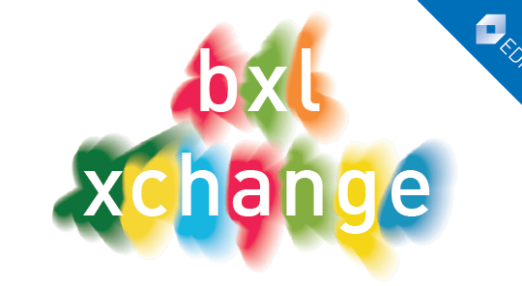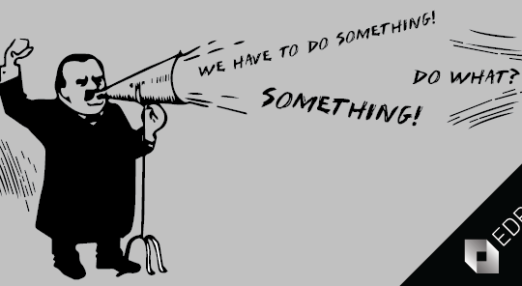Our work
EDRi is the biggest European network defending rights and freedoms online. We work to to challenge private and state actors who abuse their power to control or manipulate the public. We do so by advocating for robust and enforced laws, informing and mobilising people, promoting a healthy and accountable technology market, and building a movement of organisations and individuals committed to digital rights and freedoms in a connected world.
Filter resources
-

Brussels up close – Experiences from the EDRi exchange programme
Learning and knowing abstractly how the EU works is one thing, seeing it up close and doing advocacy work right there is quite another! I am a Policy Advisor for the Austrian EDRi member organisation "epicenter.works – for digital rights" and, in October 2018, I spent two weeks with the EDRi office in Brussels. My aim was to get a better understanding of EU law making and advocacy.
Read more
-

Welcoming our new Executive Director Claire Fernandez!
EDRi is happy to announce that we found a new Executive Director! Claire Fernandez will join the organisation on 19 November 2018, and will be in charge of the leadership, mission and strategy of the organisation, its financial sustainability and oversight, and the daily management of the operations.
Read more
-

The GDPR Today – Stats, news and tools to make data protection a reality
25 October 2018 marks the launch of GDPR Today – your online hub for staying up-to-date with the (real) life of the new EU data protection law, the General Data Protection Regulation (GDPR). The project will monitor the implementation of the law across Europe by publishing statistics and sharing relevant news around key subjects.
Read more
-

ePrivacy: Public benefit or private surveillance?
92 weeks after the proposal was published, the EU is still waiting for an ePrivacy Regulation. The Regulation is supposed to replace the current ePrivacy Directive, aligning it with the General Data Protection Regulation (GDPR).
Read more
-

EU’s flawed arguments on terrorist content give big tech more power
On 12 September 2018, the European Commission proposed yet another attempt to empower the same big tech companies it claims are already too powerful: a draft Regulation on preventing the dissemination of terrorist content online. The proposal encourages private companies to delete or disable access to “terrorist content”.
Read more
-

ENDitorial: YouTube puts uploaders, viewers & itself in a tough position
A pattern is emerging. After blocking a controversial video, YouTube nonpologises for doing so, and reinstates the video... just to block it again a few months later. The procedures around content moderation need to improve, but that's not all: more needs to change.
Read more
-

CJEU introduces new criteria for law enforcement to access data
On 2 October 2018, the Court of Justice of the European Union (CJEU) delivered a new ruling in the “Ministerio Fiscal” case on access to data retained by electronic communications service providers under the scope the ePrivacy Directive.
Read more
-

Closed-doors discussions to filter the internet continue
On 12 September 2018, the European Parliament (EP) adopted the worst imaginable amendments to the copyright Directive proposal.
Read more
-

New standards for networking challenge regulators & digital rights
On 17 October, the European body of telecommunications regulators (BEREC) organised a stakeholder meeting in Brussels, inviting industry, consumers, regulators and citizens’ rights groups to reflect on the BEREC Work Programme 2019.
Read more
-

Council continues limbo dance with the ePrivacy standards
It's been six-hundred-fifty-two days since the European Commission launched its proposal for an ePrivacy Regulation. The European Parliament took a strong stance towards the proposal when it adopted its position a year ago, but the Council of the European Union is still only taking baby steps towards finding its position.
Read more
-

Civil society calls for evidence-based solutions to disinformation
Human and digital rights organisations Access Now, Civil Liberties Union for Europe and European Digital Rights (EDRi) published a joint report on 18 October 2018 evaluating the European Commission’s online disinformation and propaganda initiatives.
Read more
-

#PrivacyCamp19 – Save the Date and Call for Panel Proposals
Join us for the 7th annual Privacy Camp! Privacy Camp will take place on 29 January 2019 in Brussels, Belgium, just before the start of the CPDP conference. Privacy Camp brings together civil society, policy-makers and academia to discuss existing and looming problems for human rights in the digital environment.
Read more
